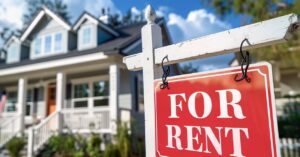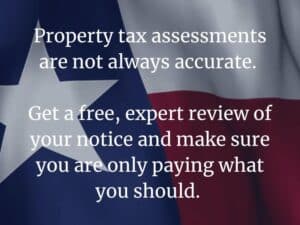If you live in a property governed by a Homeowners Association (HOA), you’re likely familiar with the monthly or annual fees that come along with it. However, many property owners don’t realize that HOA fees and assessments can sometimes play a role in their property valuation. They may also influence their property tax assessment. Therefore, understanding how these fees are viewed by appraisal districts helps manage your tax burden and how the HOA impacts property value.
What Are HOA Fees and Special Assessments?
HOA fees are regular dues that homeowners pay to support shared amenities and services within a community, such as landscaping, security, pools, and clubhouses. Special assessments, on the other hand, are one-time charges levied when major repairs or upgrades are needed. For example, repaving roads or replacing a community roof. These fees reflect the overall maintenance and quality of your neighborhood and impact property value.
These fees reflect the overall maintenance and quality of your neighborhood. In some cases, they may be seen as a signal of higher property value by appraisal districts.
Can HOA Fees Directly Impact Property Valuation?
Generally, HOA fees are not a line item in your property’s assessed value. However, the services and amenities that those fees provide can affect the overall market value of your property. Here’s how:
- Well-maintained amenities add appeal: A well-kept neighborhood with pools, fitness centers, and manicured landscaping can increase desirability. This can therefore raise market value, indicating an impact of HOA fees on property valuation.
- High fees may deter buyers: On the flip side, extremely high HOA fees can be a drawback to buyers. Consequently, this may lower demand and the price buyers are willing to pay.
- Special assessments signal deferred maintenance: If special assessments are frequent, it may suggest the HOA is underfunded. Alternatively, it could indicate the community requires major repairs. This can impact a buyer’s perception of value.
Appraisal districts may not assess your taxes based on your HOA fees directly, but they often look at comparable home sales in the area. If similar homes with high-end amenities are selling for more, that can drive your assessed value higher.
When HOA Conditions Affect Your Protest
During a property tax protest, details about your HOA can be used strategically. For example:
- If your HOA has recently increased fees or issued a special assessment, that could be used as evidence of financial strain or deferred maintenance.
- If community amenities are in poor condition, photos and documentation can show that the property isn’t as valuable as others in better-kept neighborhoods.
- If homes in your HOA have been slow to sell or selling below market, that’s valuable market data that supports your claim for a lower valuation and shows how HOA impacts property value.
At TexasPVP, we help homeowners gather the right kind of evidence including HOA-related information that can strengthen a protest.
What Appraisal Districts Look At
Most appraisal districts in Texas rely on mass appraisal models. These consider recent sales of comparable properties (comps) and features like square footage, location, age, and amenities. If the comps they use are in communities with more robust or better-maintained HOA features than yours, the comparison may be unfair, affecting the property’s assessed value.
That’s why it’s important to correct the record. Show why your property may not be worth as much as the CAD claims. HOA factors, if presented correctly, support your case.
How TexasPVP Helps You Use HOA Info to Your Advantage
Our team at TexasPVP knows how to present a complete and persuasive case. If your HOA fees are unusually high, amenities are neglected, or assessments are burdening residents, we’ll help:
- Document the condition of the community
- Compare similar properties inside and outside of your HOA
- Analyze market data from recent sales
- Present compelling evidence to the appraisal district or ARB
We build a full picture of your property’s value not just based on square footage, but on real-world conditions influenced by HOA fees.
Final Thoughts: HOA Details Matter
While HOA fees themselves don’t appear directly on your property tax statement, they can influence your property’s perceived value and your tax burden. By understanding how HOA dynamics impact property valuation, you can better advocate for a fair assessment.
If you’re preparing for a property tax protest and have concerns about how your HOA factors into your valuation, contact TexasPVP today. We’ll help you evaluate your case and fight for the lowest, most accurate taxable value.






